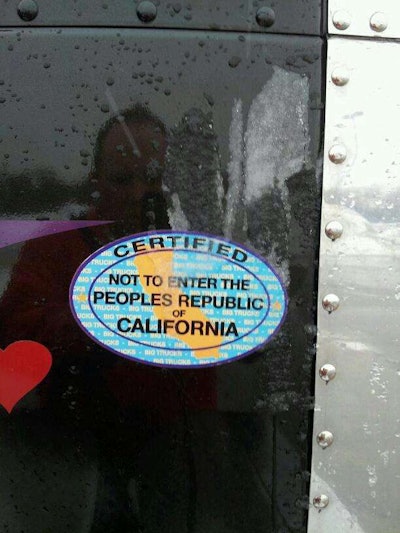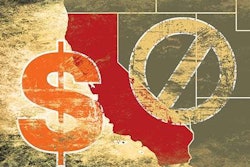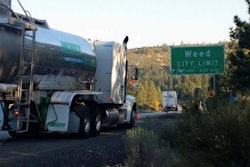
Two bills signed into law last week by California Gov. Gavin Newsom will further crack down on heavy-duty diesel trucks in the state. One law establishes “smog checks” for trucks to register and/or operate in the state, while the other is designed to accelerate the move away from diesel-powered trucks to zero emissions vehicles — with the latter pressing the state to phase-out diesel-powered trucks by 2050.
The smog check law establishes a so-called Heavy-Duty Vehicle Inspections and Maintenance Program to test the effectiveness of the control of emissions and oxides of nitrogen (NOx) and particulate matter. The new law allows for the use of onboard diagnostics system data and test procedures to measure emissions control effectiveness.
“Just as car owners have to get their own personal cars ‘smog checked’ every two years, so too should truck operators be required to maintain their emissions controls so that we can ensure long lasting air quality improvements here in California,” said California Sen. Connie Leyva, who sponsored the legislation.
The new testing will be more in-depth than the current Periodic Smoke Inspection Program (PSIP) tests the state conducts, which measure smoke opacity levels in trucks owned by California-based fleets with two or more trucks. The new law calls for the California Air Resources Board to sunset the PSIP once the new program is fully implemented. It will also apply to all diesel trucks weighing more than 14,000 pounds, including single-vehicle fleets.

Joe Rajkovacz, director of government affairs and communications for the Western States Trucking Association, says WSTA is opposed to the emissions testing bill “because [CARB] had already moved toward reducing opacity limits, and we weren’t objecting to that. This is not only redundant, but also costly.”
Another point of concern in the law, says Rajkovacz, is giving emissions testers access to engine control module data. He says CARB has said it only wants emissions data from the ECM, but there is “certainly a lot of other data with it.”
Under the new law, CARB is tasked with implementing a pilot program to develop and test technologies to bring heavy-duty vehicles into the new inspection and maintenance program. Within two years after the completion of the pilot program, the program would be fully implemented.
The law also requires CARB to establish a way for out-of-state truck owners to verify compliance with the standards before entering the state.
A $30 fee will be collected as part of the program for testing, which will be deposited into a new Truck Emission Check Fund. The new fund will be used for administrative purposes of the program. Any penalties collected from violations of the program would be deposited into the state’s Air Pollution Control Fund.
Truck owners whose trucks fail the emissions test can be issued a $50 temporary permit for 60 days, allowing them to operate while working to become emissions compliant.
Additionally, the new law bans the operation of trucks with an illuminated malfunction indicator light (MIL), as well as banning the operation of trucks with visible smoke exhaust, except during active regeneration.
The other law, dubbed “Ditching Dirty Diesel” by its sponsor Sen. Nancy Skinner, requires CARB to recommend goals for reducing emissions from medium- and heavy-duty trucks by 2030 and 2050, respectively. The law also tasks CARB with finding incentives for fleets that reduce GHG earlier than required.
The original language of the bill called for an 80% reduction in greenhouse gas emissions by 2050, which would effectively phase out diesel trucks in favor of electric or alternate fuel-powered trucks. The final version of the bill signed into law, however, does not include a specific emissions reduction goal but rather leaves it up to CARB to establish the reduction goals.
The law also requires CARB to develop a strategy for medium- and heavy-duty trucks by Jan. 1, 2021, to help bring all of California into compliance with federal air quality standards.








